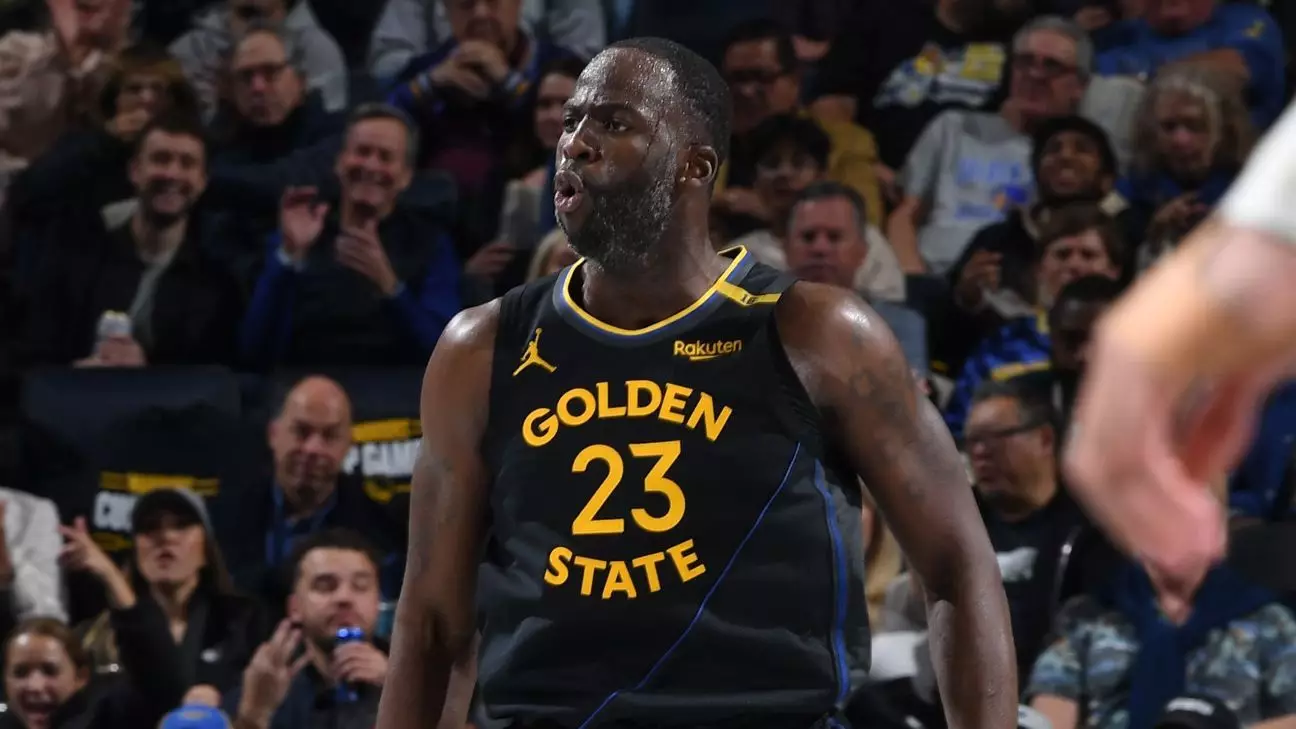The Golden State Warriors locker room has seen its fair share of drama, but perhaps none has caused as much concern as the incident between Draymond Green and Jordan Poole. This pivotal moment in 2022 not only raised questions about team dynamics but also spotlighted the consequences of uncontrolled emotions in professional sports. The fallout from Green’s impulsive decision to punch his then-teammate during a preseason practice session forced the Warriors to confront issues of accountability and trust in a way they had not anticipated, especially following their victory in the NBA championship the previous season.
Green’s recent apology and subsequent reflections indicate a desire to transform this incident into a learning experience for himself and others. While Green claims to have moved on, the emotional scars remain, exemplifying how a single moment of rage can disrupt even the most successful teams.
Draymond Green’s apology came in the wake of Poole’s own sentiments about returning to the Warriors’ home court as a member of the Washington Wizards. Poole’s comments hinted at lingering tensions that encapsulated their shared history. Responding to Poole’s statements on “The Draymond Green Show,” Green expressed his regret while emphasizing the necessity to move forward. His emotional turmoil was evident as he grappled with the duality of accepting responsibility for his actions while also feeling targeted by Poole’s remarks.
Green’s assertion that Poole appeared to seek sympathy touched on a broader theme often present in personal conflicts: the discomfort surrounding vulnerability. In the heat of competitive sports, emotions can easily flare, and such admissions could impact a player’s public persona. However, it is crucial for athletes, especially those in leadership positions, to navigate their relationships with sincerity and transparency.
Green’s journey since the incident has been far from linear, as he continued to face difficulties on and off the court. His suspension for violent altercations with opponents—notably the chokehold on Minnesota Timberwolves’ Rudy Gobert—illustrated recurring behavioral issues. However, the willingness to seek counseling and engage in critical self-reflection signifies a turning point. Green’s commitment to working with multiple therapists reveals a conscious decision to grow not just as a player but as an individual.
Green’s keen awareness that emotions can sway judgment is paramount, especially in an environment where aggression is often glorified. Transitioning from a reactionary approach to one that values accountability enables him to lead by example, which is vital for a team still grappling with the aftermath of his previous decisions. By publicly acknowledging his faults, Green is demonstrating a level of vulnerability that can contribute positively to the team’s culture.
Much of Green’s recent narrative is centered around the importance of accountability—both to oneself and to teammates. His insistence that he has taken responsibility for his actions sets an important precedent in a league where egos often eclipse humility. Instead of allowing himself to become stagnant due to past mistakes, Green is choosing to view each setback as an opportunity to improve.
Moreover, the evolution of Green’s approach this season—marked by fewer technical fouls and a singular ejection compared to previous years—suggests a shift in mindset. He aims to become a player who is more in control, understanding that leadership is most valuable when it is accompanied by composure. As he stated, “I’m not a failure,” but he recognizes the need to be better.
The dynamic between Draymond Green and Jordan Poole serves as a microcosm for team relationships in professional sports. It emphasizes the delicate balance between competition and camaraderie, urging players to engage with empathy and understanding. As Green looks ahead, he seeks to redefine his legacy—not merely through accolades but through personal growth and positive contributions to his team’s morale.
As injuries sideline him and team chemistry continues to be tested, the focus will remain on how effectively the Warriors can move beyond past grievances. The real challenge lies not in the bad blood that may linger, but in the willingness to engage with healing and cooperation, reminding everyone that success is ultimately a collective endeavor.

